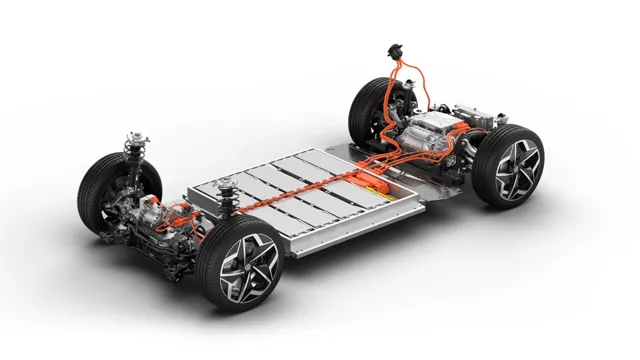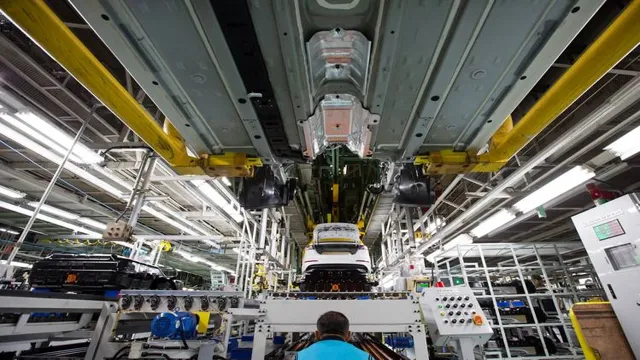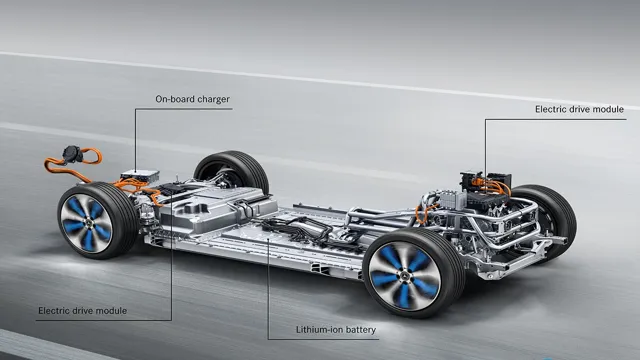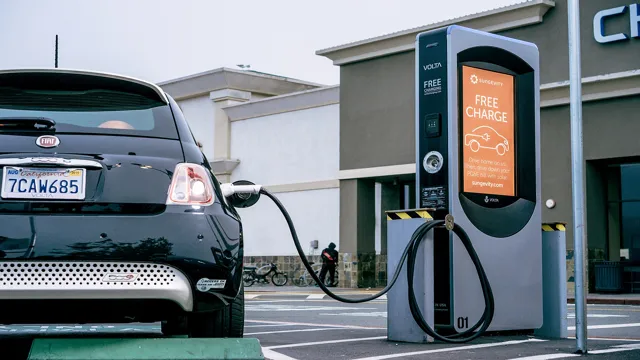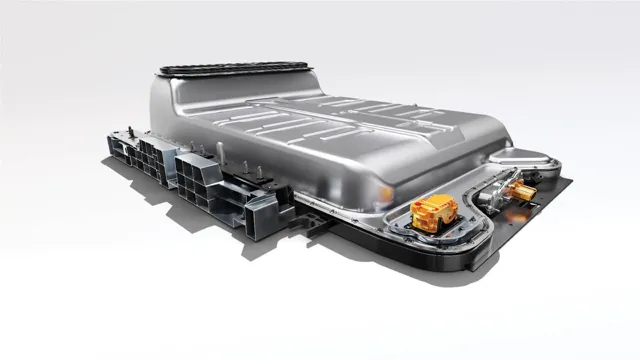The Ultimate Guide to Understanding Electric Car Battery Size in Ah
Electric cars are becoming more and more popular these days, and for good reason. They’re environmentally friendly, they save you money on gas, and they’re just plain cool. But if you’re thinking about buying an electric car, you might be wondering about the battery sizes.
What are they, and how will they affect your driving experience? Well, fear not! In this article, we’ll explain everything you need to know about electric car battery sizes. We’ll cover the different types of batteries, how they’re measured, and what kind of range you can expect from each size. Whether you’re a seasoned electric car owner or you’re just starting to learn about them, we’re here to help you make an informed decision.
So sit back, relax, and let’s dive into the world of electric car batteries!
Understanding Battery Size (Ah)
Electric car battery size is measured in ampere-hours (Ah), which indicates the amount of charge a battery can hold and deliver. The higher the Ah rating, the more energy the battery can store and provide. This is important because the battery size and range are directly related, meaning electric car batteries with higher Ah ratings will have longer ranges.
It’s important to note that while higher Ah ratings may provide longer range, they may also result in heavier and more expensive batteries, so it’s essential to balance range with other factors such as weight, cost, and charging time. Additionally, battery size and performance can be impacted by driving style, weather conditions, and other factors. Therefore, it’s crucial to consider the specific needs and use case of the electric car before deciding on a battery size with a particular Ah rating.
Overall, understanding electric car battery size in Ah can help consumers make informed decisions when purchasing an electric vehicle.
What is Ah?
Ah stands for ampere-hour, which is a unit of electric charge. It is commonly used to describe the size or capacity of a battery. Essentially, it is a measure of how much energy a battery can store and deliver over time.
The higher the Ah rating of a battery, the longer it can last before needing to be recharged. This is because it has a larger energy reserve. Thus, it’s important to consider the Ah rating of a battery when purchasing one for your device.
A battery with a lower Ah rating may be suitable for smaller devices with less energy demand, while larger devices with higher energy requirements may need a battery with a higher Ah rating. When shopping for a battery, make sure to check the Ah rating to ensure you are getting the right size for your needs.
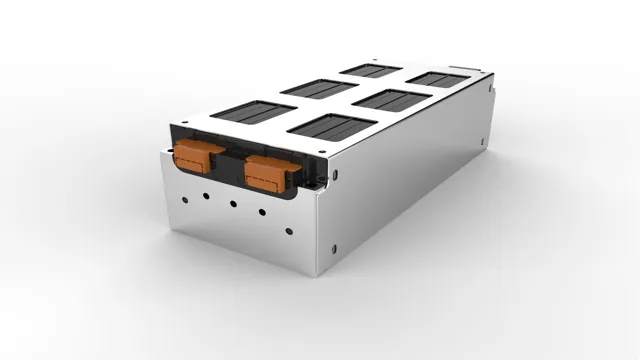
How to Measure Battery Capacity
Understanding the size of a battery plays a crucial role in measuring its capacity. This is where Ampere hours (Ah) come in as a vital metric for batteries. Ah, generally known as the battery’s electrochemical capacity, is the unit used to measure the amount of energy stored in a battery.
The Ah rating is a measure of the battery’s ability to produce and supply the current over a set period. When selecting a battery for your device, it’s crucial to keep in mind that a higher Ah rating indicates a more extensive battery capacity and vice versa. This means that a 12V battery with an Ah rating of 30Ah will last significantly longer than one with a rating of 20Ah.
The unit of Ah measurement serves to provide you with an idea of the time a battery can last before needing to be recharged. Additionally, it indicates the size of the battery for a practical understanding of the amount of energy supplied. When using batteries, it’s best to use a proper battery tester that enables you to measure the battery’s capacity accurately.
The tester often displays the voltage and Ah ratings of the battery. In conclusion, understanding the size of the battery, measured in Ah, is vital to selecting the ideal battery capacity for your device’s needs. Remember to keep in mind that a higher Ah rating usually results in longer-lasting battery capacity.
Factors Affecting Electric Car Battery Size
When it comes to electric car batteries, there are several factors that affect their size, but one of the most important is the battery’s amp hour (Ah) rating. Ah is a measurement of the battery’s capacity, or how much energy it can store. The higher the Ah rating, the larger the battery will be.
Other factors that can impact the size of an electric car battery include the vehicle’s range requirements, power output, and charging speed. For example, a larger battery may be necessary for an electric vehicle that needs to travel longer distances or have higher power demands. Additionally, vehicles with faster charging capabilities may require larger batteries in order to be able to quickly replenish their energy stores.
As electric cars continue to grow in popularity, advancements in battery technology are allowing for smaller, more efficient batteries that can deliver greater levels of performance, making it possible for electric vehicles to travel farther and faster than ever before.
Range Requirements
When it comes to electric car battery size, several factors come into play when determining the range requirements. One of these factors is the type of vehicle, as it can significantly impact the power consumption. For example, a larger and heavier car will require a more massive battery to power it compared to a lighter and smaller one.
Additionally, driving habits and terrain can also affect the battery’s capacity and range. Frequent stops and starts or driving uphill can drain the battery, reducing its range. On the other hand, regular highway driving can improve the range due to consistent speeds and less energy consumption.
Other factors that can impact range requirements include weather conditions, temperature extremes, and the vehicle’s age and condition. Therefore, when selecting an electric car, it’s essential to consider these factors and determine the ideal battery size for the desired range.
Size and Weight Constraints
When it comes to electric car battery size, there are a number of factors that play a role in determining just how big the battery needs to be. First and foremost, the size and weight of the vehicle itself have a huge impact on the size of the battery that’s needed. Smaller, lighter vehicles can make do with smaller batteries, while bigger vehicles will require larger batteries to power their motors.
Additionally, the range that the vehicle needs to achieve will also impact the size of the battery, with longer ranges requiring bigger batteries. Finally, the efficiency of the motor and other components will also play a role, with more efficient cars requiring less battery power to achieve their desired range. All of these factors come together to determine the optimal size of the battery for any given electric car.
Charging Time
Charging an electric car takes more time than filling up a gas car, but the good news is that you don’t have to stop at a gas station too frequently. A significant factor in the charging time is the battery size, which in turn is affected by several factors. The first is the driving range that the car provides, which means the battery needs to keep the car going for a specified distance.
Secondly, the payload capacity of the vehicle influences the battery’s size because it requires more power to move heavier vehicles. The complexity of the electric car features also contributes to the battery size, including the heating and ventilation systems, entertainment systems, and the number of electric motors and drives. Other factors impacting battery size include aerodynamics and the car’s design.
To reduce charging times, new battery technologies have emerged that provide higher energy densities, but also improve the longevity and safety of the battery. These technologies, along with advances in charging infrastructure, will make electric cars more viable for long-distance travel.
Electric Car Battery Size Comparison
When it comes to electric cars, one of the most important factors to consider is the size of the battery, which is measured in ampere-hours (Ah). This measurement tells you how much energy the battery can store, and ultimately how far you can go on a single charge. The size of electric car batteries can vary greatly depending on the make and model of the vehicle.
For example, the Nissan Leaf has a battery size of 40 Ah, while the Tesla Model S has a much larger battery of 100 Ah. The size of the battery will also affect the charging time, with larger batteries taking longer to fully charge. Additionally, the size of the battery will affect the overall weight and size of the vehicle, so it’s important to consider both the battery size and the overall design when choosing an electric car to fit your needs.
Top Electric Cars and Battery Sizes
If you’re thinking about purchasing an electric vehicle (EV), it’s important to know the battery size and how it impacts the range and performance of your car. The standard among EVs is the lithium-ion battery, but the size of the battery varies across different makes and models. The Tesla Model S boasts one of the largest batteries with a capacity of 100 kWh, providing a range of up to 402 miles on a single charge.
On the more affordable side, the Nissan Leaf has a 40 kWh battery that delivers a range of around 150 miles. Other popular EVs like the Chevrolet Bolt and Hyundai Kona Electric fall somewhere in between, with battery sizes ranging from 60-64 kWh and a range of up to 259 miles. It’s important to consider your daily driving habits and individual needs when selecting an EV with the appropriate battery size.
And as technology continues to evolve, battery sizes and ranges are likely to improve, making EVs an even more viable option for drivers in the future.
Battery Size vs Range
When it comes to electric cars, the battery size plays a crucial role in determining the range of the vehicle. The larger the battery, the more power it can store, and the farther the car can travel on a single charge. However, it’s important to note that the size of the battery is not the only factor that influences the range of an electric car.
Other factors such as the weight of the vehicle, driving conditions, and weather can also affect the total range. It’s important to consider the specific needs and usage of the vehicle before deciding on battery size, as a larger battery may not always be necessary for every driver. Ultimately, it’s important to strike a balance between battery size, range, and cost to find the perfect fit for your electric car needs.
Choosing the Right Battery Size
When it comes to electric car battery size, the ampere hour (Ah) rating is an important factor to consider. The Ah rating indicates the amount of energy the battery can store and supply to the vehicle’s motor. A larger battery size with a higher Ah rating can provide greater range per charge, but it also adds weight to the car and can increase the cost.
It’s important to balance the desire for maximum range with practicality and cost. Additionally, it’s important to consider how the battery will be used. If the car will primarily be used for daily commutes and short trips, a smaller battery may be sufficient.
However, if the car will be used for longer trips or heavy use, a larger battery with a higher Ah rating may be necessary. Ultimately, the choice of battery size depends on individual preferences and needs.
Determining Your Needs
When choosing the right battery size, you need to consider what your needs are. Are you looking for a battery that will last longer or one that is more powerful? It all depends on what you plan to use it for. If you’re using your battery for a flashlight, you might only need a small battery that lasts a few hours.
However, if you’re using it for a power tool, you’ll need a more powerful battery that can handle the demands of the tool and last for a longer time. You also want to consider the size and weight of the battery. A larger battery may provide more power but can be heavy and difficult to carry around.
On the other hand, a smaller battery may not provide as much power but can be easier to transport. Ultimately, it’s important to determine your needs before choosing a battery size that is right for you.
Cost Considerations
When it comes to choosing the right battery size, cost is a major consideration. Larger batteries are typically more expensive than smaller ones, and it’s important to find a balance between capacity and price. While a larger battery may seem like the better investment for longer run times, it may not always be necessary or cost-effective.
When selecting a battery size, consider how you will be using the device and for how long. If you only need a device to run for a few hours or intermittently, a smaller battery may suffice. On the other hand, if you need a device to run continuously for an extended period of time, a larger battery would be a better option.
It’s important to note that larger batteries may also come with additional costs such as weight and size, which may impact the portability of the device. Additionally, larger batteries may take longer to charge and may require specialized charging equipment. In short, choosing the right battery size is all about finding the balance between capacity and cost.
It’s important to consider your specific needs and usage habits, as well as the potential costs and trade-offs that come with larger batteries. By carefully weighing these factors, you can choose a battery size that meets your needs without breaking the bank.
Conclusion
In conclusion, the size of an electric car battery measured in ampere-hours (Ah) is the key to unlocking the potential of eco-friendly transportation. To put it simply, the higher the Ah rating, the farther the car can go on a single charge. But it’s not just about distance – battery size also affects acceleration, top speeds, and overall performance.
So, if you’re looking for a zippy electric ride with long-lasting power, just remember: when it comes to batteries, size does matter…
in Ampere-hours!”
FAQs
What does “ah” mean in electric car battery size?
“Ah” stands for ampere hours and refers to the capacity of the battery to store and deliver electric charge.
Can the battery size affect the range of an electric car?
Yes, a larger battery size generally means a longer range for an electric car.
Is it possible to upgrade the battery size of an electric car?
In some cases, it may be possible to upgrade the battery size of an electric car, although it may be expensive and require modifications to the car.
Are there any drawbacks to having a larger battery size?
Larger battery sizes can add weight and cost to an electric car, which can impact performance and affordability.
